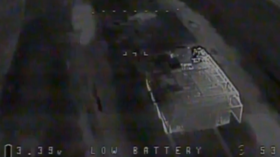‘No evidence that mass surveillance saves lives’ from terror attacks – Liberty

Allowing a terror attack to take place in Britain is the “price we should be willing to pay” to maintain levels of privacy and ensure surveillance agencies do not have access to consumers’ personal data, human rights group Liberty have said.
Isabella Sankey, director of policy for the group, claimed it was better to let “some things happen” than to give spy agencies access to huge volumes of metadata via “privacy-infringing measures.”
Liberty was quick to come out in protest against GCHQ’s mass surveillance techniques when they were revealed by NSA whistleblower Edward Snowden in 2013.
The Intelligence and Security Committee (ISC) found that the spy agency had the capacity to monitor “large numbers of items” and used “bulk interception” powers to obtain information about terror threats.
They dismissed, however, claims that GCHQ had power to trawl through volumes of private messages, saying they only had access to a small part of the web.
While giving evidence on behalf of Liberty in October, Sankey was asked whether she opposed the bulk collection of metadata when used in a “targeted” way to “prevent plots and contribute to national security.”
She said the principle of the collection techniques was “wrong in principle” even if they were lawful.
READ MORE: Mass spying on UK citizens ‘essential,’ say MPs in landmark report
“Some things might happen that could have been prevented if you took all of the most oppressive, restrictive and privacy-infringing measures. That is the price you pay to live in a free society,” she added.
The ISC responded by saying they did not agree.
“We do not subscribe to the point of view that it is acceptable to let some terrorist attacks happen to uphold the individual right to privacy — nor do we believe that the vast majority of the British public would.”
One Labour MP who sits on the committee said Sankey’s views were “unacceptable.”
“Their view was even if terrorist plots happened they were not prepared to allow this capability to collect information whereas that’s not a view we take.”
“The public will want to see they have that capability but absolutely constrained by a proper legal framework.”
“To not have the capability you’re going to accept that some plots will happen and innocent people will lose their lives because you do not want agencies to have this capability. I think it’s unacceptable,” she said.
On Thursday, Sankey accused the committee of twisting her words.
“Instead of attempting to put words into the mouths of privacy campaigners, the ISC should have put its efforts into scrutinizing the agencies.”
“There is absolutely no excuse for terrorism and society must take all proportional steps to deal with it – but the real story here is that, despite their best efforts, the committee has been unable to present any evidence that mass surveillance of innocents’ calls and emails is saving any lives,” she said.












